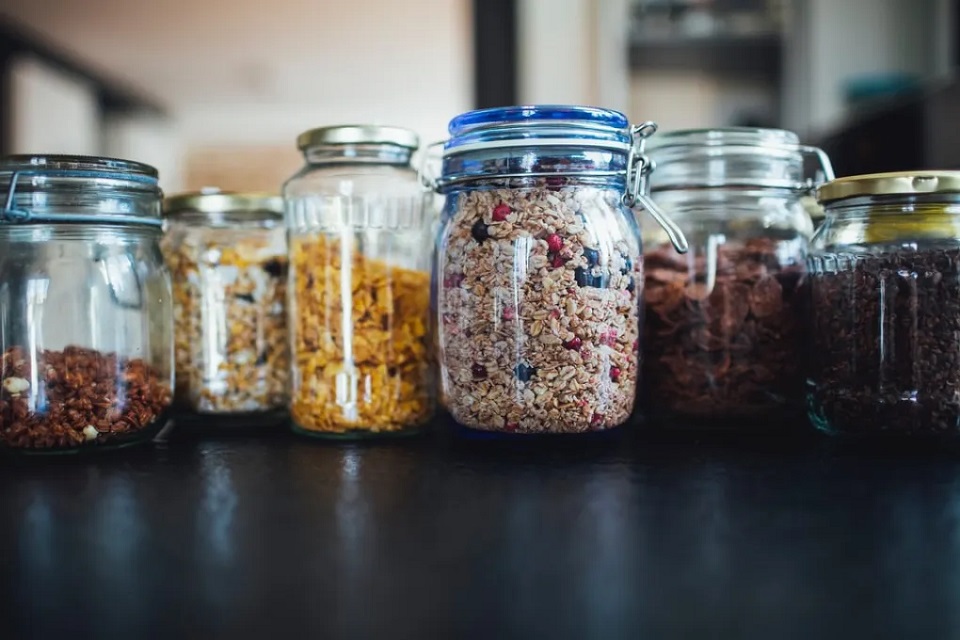Unlike plastic containers, Glass can last years and is one-hundred percent recyclable. Plus, it can be made into food storage jars repeatedly without losing quality.
For anyone tired of a mishmash of plastic food containers cluttering their kitchen, consider switching to Glass. Here are five benefits of storing foods in glass jars:
Keeps Food Fresh
Glass is safe, non-toxic, and does not leach chemicals into food like plastic containers. This can help extend your foods’ shelf life and reduce food waste.
Additionally, the airtight seal on the glass jars helps to keep food fresh and prevent spoilage. This can help to cut down on food. Long-term savings come from avoiding waste.
Add an oxygen absorber to the bottom of the pot when storing vegetables, herbs, and other dry foods in your jars. This can also help keep starchy vegetables, such as potatoes and yams, which tend to go bad quickly due to their high moisture content. You can also use a paper towel to absorb excess moisture in watery vegetables, such as carrots and radishes, or fruit, like apples, grapes, and peaches.
Makes Meal Prep Easier
Food stored in glass containers stays fresh longer because it won’t absorb odors or flavors from other foods. This is especially important for high-risk foods such as eggs, prepared salads, and meat.
For longer-term storage, you can use a vacuum sealer on glass jars to further prolong the life of your food. Just leave an air gap between the lid and the food to allow for expansion as it freezes.
Another great thing about glass meal prep containers is that they perform well under various temperatures. That means they can go from freezer to oven without transferring toxic chemicals to your food like plastic.
Reduces Waste
When you use Glass to store your food, you can reduce the amount of waste you produce. Glass won’t harbor bacteria or leach chemicals into the food inside, so it will help to keep your family healthy.
Glass is also eco-friendly because it’s 100% recyclable. That means it can be recycled into a new container without losing quality or usability. On the other hand, plastic can be recycled only a limited number of times and may not even be reused in the same way as the original container.
If you’re storing foods like flour, grains, and spices in glass jars, you can also freeze them. Just ensure they are completely cooled before freezing, and leave an inch of headspace in the pot for expansion.
Easy To Clean
If you want to save on food waste and reduce your carbon footprint, storing your homemade preserves, dried herbs, and other pantry staples in glass jars is an excellent choice. Glass is non-porous and doesn’t absorb odors the way plastic does, so food stays fresher for longer.
Stock up on glass jars when shopping at the grocery store for bulk storage of pantry items like pasta, rice and grains, sugar, honey, flour, spices, and more. You’ll be able to see what you have on hand, which helps you plan meals and minimizes the chances of food going bad before you use it. Plus, glass jars are easy to clean and can be washed in the dishwasher. They’re also a great alternative to plastic packaging, which decomposes for hundreds of years after it is thrown away.
Recyclable
Unlike plastic, Glass is entirely recyclable. You must rinse it and drop it in your recycling bin on collection day.
It doesn’t absorb odors or tastes either, so your foods will stay fresher, and their flavors will be preserved. Glass also blocks out light, which is suitable for foods like pickles and other condiments that degrade over time.
Dry foods such as spices, sugar, flour, and rice are stored well in glass jars. Vacuum sealing is a modern method of food preservation that can extend the shelf life of many foods, especially those high in fat or moisture, such as nuts and granola. Just use an oxygen absorber when storing those items in your jars. This will reduce the chance of spoilage caused by bacteria.








No Comments